Research Institutions in the CoE
The CoE Microplanet brings together a highly interdisciplinary research team from eight leading research institutions in Austria with one common goal: to unlock the microbiome’s potential for planetary health.
Microbiome researchers from CeMESS at the University of Vienna join forces with researchers from the Center for Molecular Medicine (CeMM) and the Medical University of Vienna, spectroscopists, analytical chemists, and microfluidic experts from the Technical University of Vienna, medical microbiome researchers, atomic force microscopists, and gastroenterologists from the Medical University of Graz and the University of Linz, and with experts from the Austrian Institute of Technology (AIT), as well as the Institute of Science and Technology, Austria (ISTA),
University of Vienna
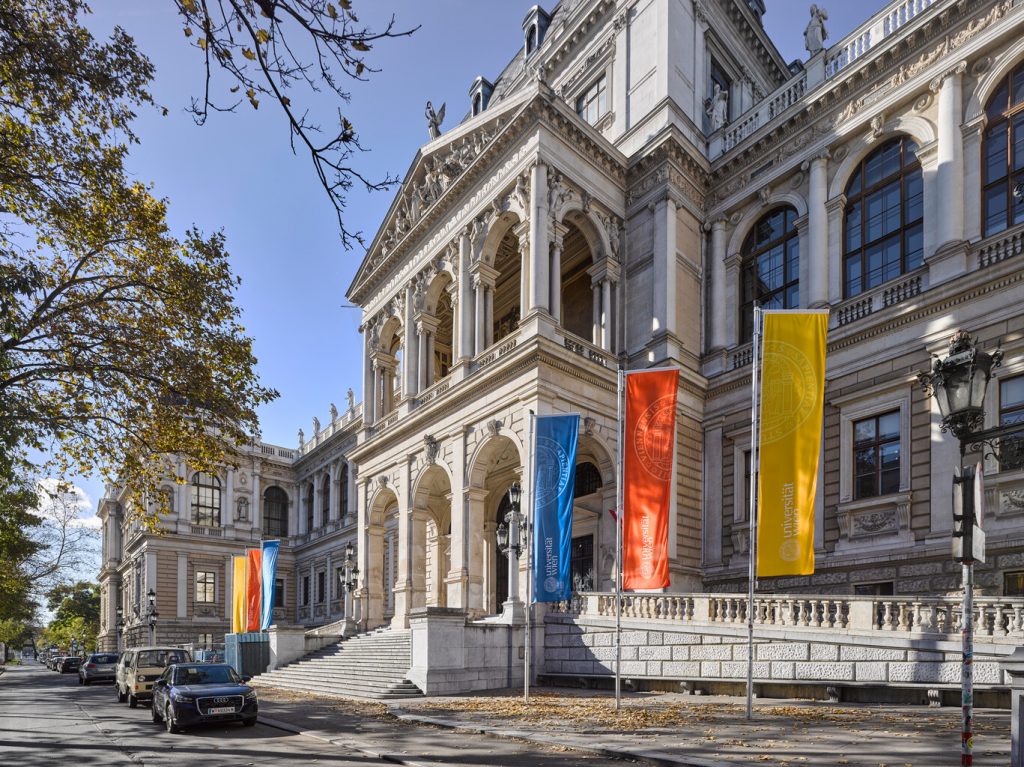
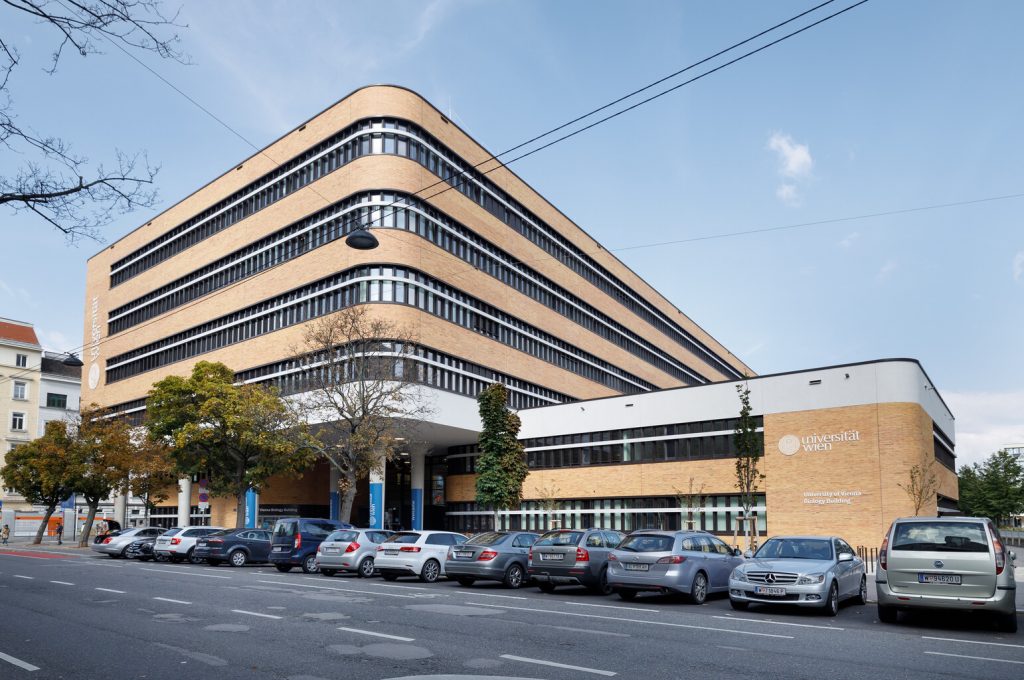
The University of Vienna is Austria’s largest research institution and largest educational institution: around 85,200 national and international students are currently enrolled at the University of Vienna. With 187 degree programs, it offers the most diverse range of courses in the country. The University of Vienna is also an important institution for continuing education in Austria. Founded in 1365, the Alma Mater Rudolphina Vindobonensis celebrated its 650th anniversary in 2015 with a diverse annual program. In fall 2022, the University of Vienna congratulated Anton Zeilinger on winning the 2022 Nobel Prize in Physics. In 2023, the University of Vienna improved significantly in all three of the most important university rankings (THE, QS, Shanghai).
The core of the CoE Microplanet is formed by microbiome researchers from the Centre for Microbiology and Environmental Systems Science (CeMESS) at the University of Vienna. Established in 2019, CeMESS is a world-leading environmental microbiome research institution. The Centre comprises four Research Divisions spanning microbiology, bioinformatics, terrestrial ecology, and environmental systems science. Researchers at CeMESS perform functional microbiome research to obtain a comprehensive understanding of host-microbe interactions, investigate the role of microbial communities in the functioning of complex ecological systems, and assess the impact of human activities on environmental systems in a changing world.
CoE Members at CeMESS include CoE Director of Research Michael Wagner, CoE Board of Directors member Christina Kaiser, as well as CoE Key Researchers Isabella Anderson-Wagner, David Berry, Thomas Böttcher, Holger Daims, Thilo Hofmann, Matthias Horn, Katharina Kitzinger, Stephan Krämer, Alexander Loy, Jillian Petersen, Petra Pjevac, Shaul Pollak, Martin Polz, Thomas Rattei, Andreas Richter, Wolfgang Wanek and Dagmar Woebken.
The group of CoE Key Researcher Kristina Djinovic-Carugo, affiliated with Max Perutz Labs at the University of Vienna, will enable CoE members to access complementary molecular biophysics and structural biology techniques to elucidate the structural biology of proteins.
AIT Austrian Institute of Technology
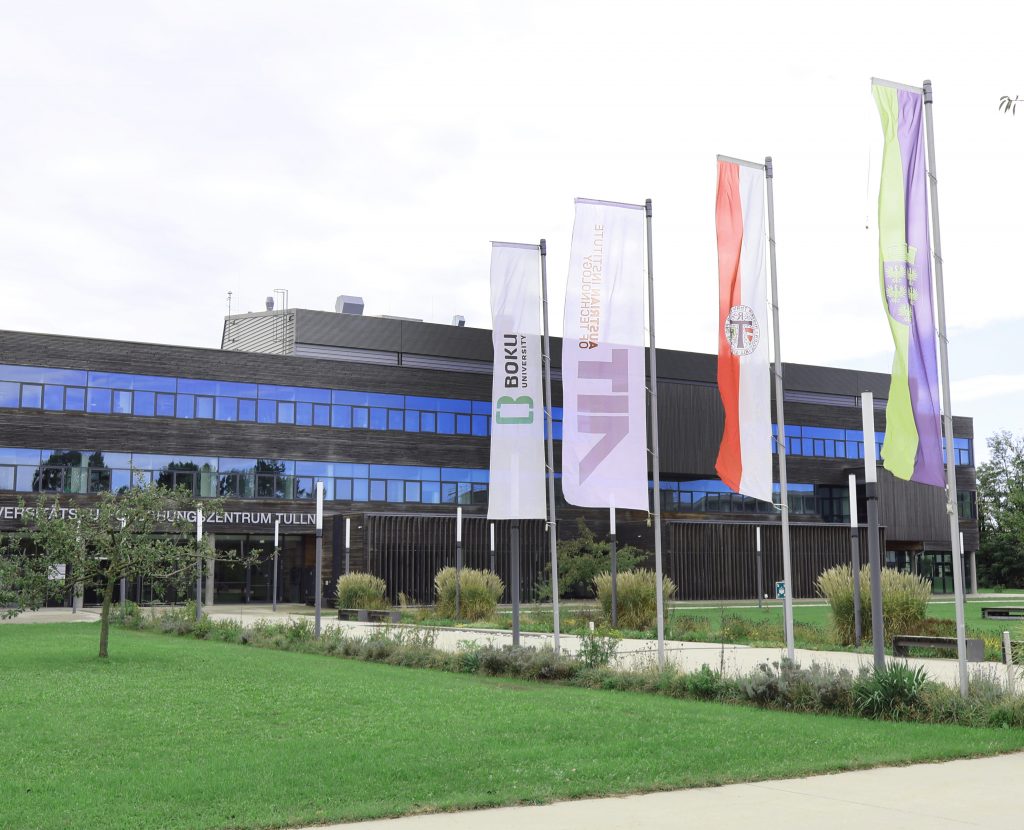
The AIT Austrian Institute of Technology is Austria’s largest non-university research institution and is the specialist among European research institutions for the key infrastructure issues of the future. As an Ingenious Partner of industry and public institutions, the AIT is already researching and developing the technologies, methods and tools for future innovations.
The AIT Austrian Institute of Technology occupies a leading position in innovation in Austria and also plays a key role at European level as the research and technology institution that tackles the key infrastructure issues of the future.
Angela Sessitsch, a CoE Board of Directors member, heads the Competence Unit Bioresources at AIT. Angela and her team investigate the functions and mechanisms of plant microbiomes and explore ways in which microbiomes can be used for applications in plant production. They aim to investigate the ecology of microorganisms and their colonization in different plant habitats, especially in the endosphere of plants, and to elucidate how these microorganisms interact with their host, other microorganisms, and the environment.
Research Center for molecular medicine of the Austrian academy of sciences (CEMM)
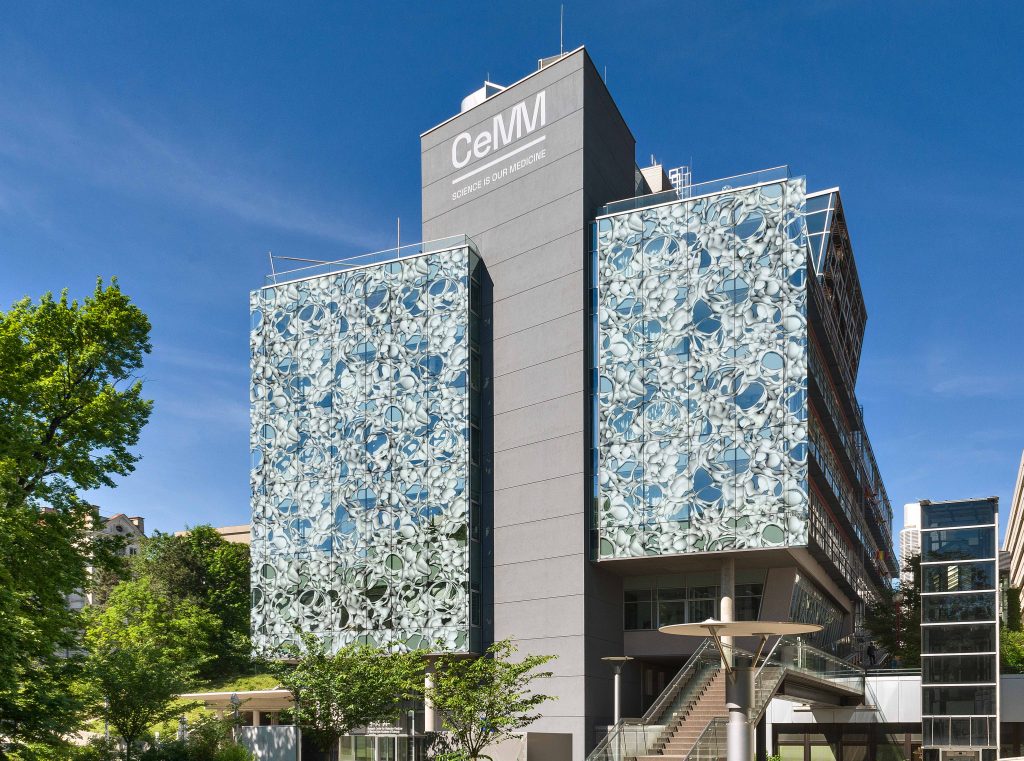
CeMM is an interdisciplinary research institute of the Austrian Academy of Sciences committed to advancing understanding human diseases through basic and biomedical research. Located in a tailor-made building in the midst of the Medical University of Vienna’s campus, CeMM is dedicated to its mission statement to pioneer science that nurtures the precise, personalized, predictive, and preventive medicine of the future. Focusing on medically relevant questions, CeMM researchers concentrate on human biology and diseases like cancer, inflammation/immune disorders, and rare diseases.
Clarissa Campbell, member of the CoE Board of Directors, leads her research group on mucosal immunity at CEMM. Clarissa and her team want to understand how immunity and metabolism are integrated at the organismal level. They study the coordination of host and microbial physiology at the intestinal mucosa and metabolic adaptation during chronic helminthic infection.
Institute of Science and Technology Austria (ISTA)
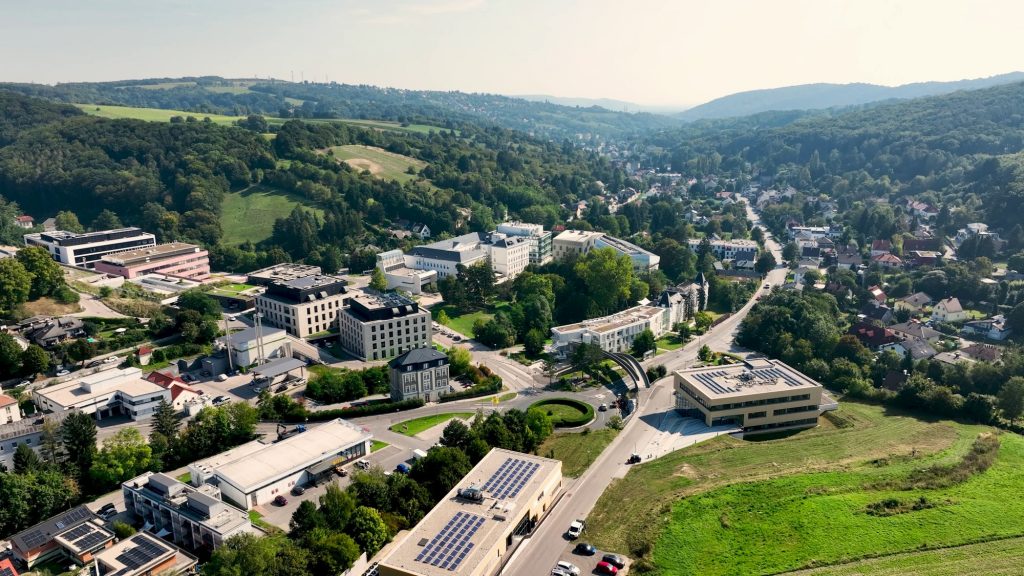
The Institute of Science and Technology Austria (ISTA) in Klosterneuburg, on the outskirts of Vienna, is a PhD-granting research institute. Opened in 2009, ISTA currently has 80 research groups conducting basic research in mathematics, computer science, physics, chemistry, neuroscience, biology, earth sciences, and astrophysics. An essential factor for the Institute’s success is that traditional boundaries between disciplines are broken down and cooperation between groups is strongly encouraged.
Leonid Sazanov, a member of the CoE Board of Directors, leads his research group on the structural biology of membrane protein complexes at ISTA. He and his team elucidate the molecular design of some of the most intricate biological machines responsible for many fundamental cellular processes. In 2024, Leonid was awarded the Erwin Schrödinger Award for his outstanding contributions to the field of structural biology.
Johannes kepler university Linz (JKU)
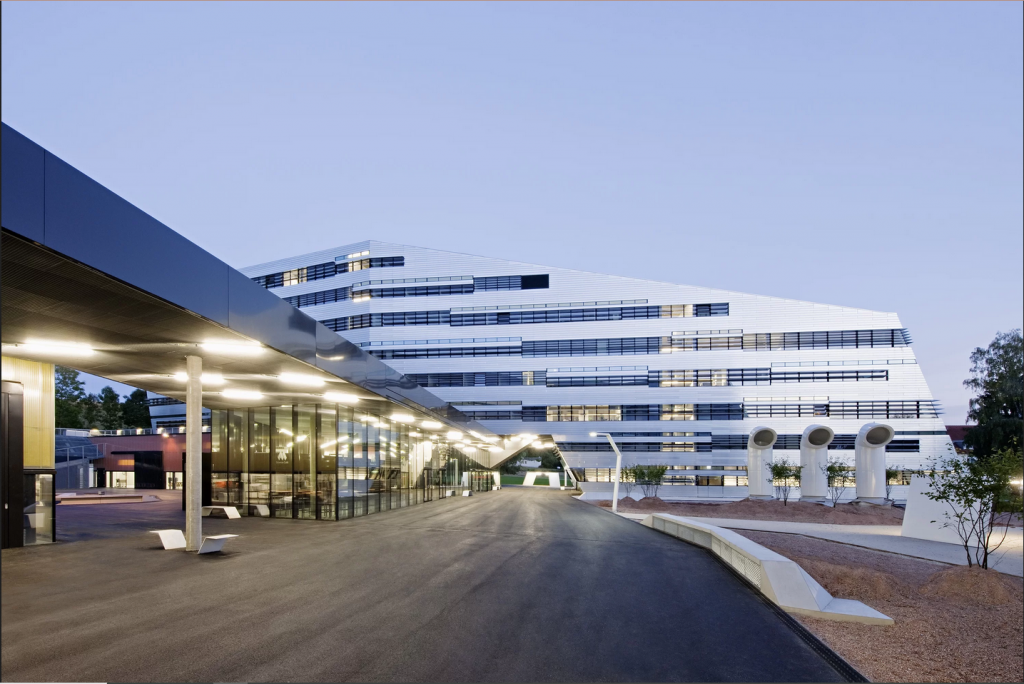
JKU is a broad, inter-, and transdisciplinary, forward-looking university that contributes significantly to transformation and resilience in education, research, and society. Its profile rests on a strong and unique combination of technical and natural sciences, social sciences, economics, law, medicine, and education. JKU sees itself as a university with strong regional roots and, at the same time, an international orientation that is constantly developing towards a leading position in Europe. JKU is in close contact with society and actively seeks and develops cooperation between institutions.
Alexander Moschen is affiliated with both JKU and Kepler University Hospital, where he leads the gastroenterology clinic. He is a member of the CoE Board of Directors and brings extensive experience in medical microbiome research to the CoE. Peter Hinterdorfer, head of the Institute for Biophysics at JKU, enables CoE members to access a suite of atomic force microscopes via Method Facility 9. This technique allows for the resolution of the ultrastructure of bacterial interactions.
medical university of Graz
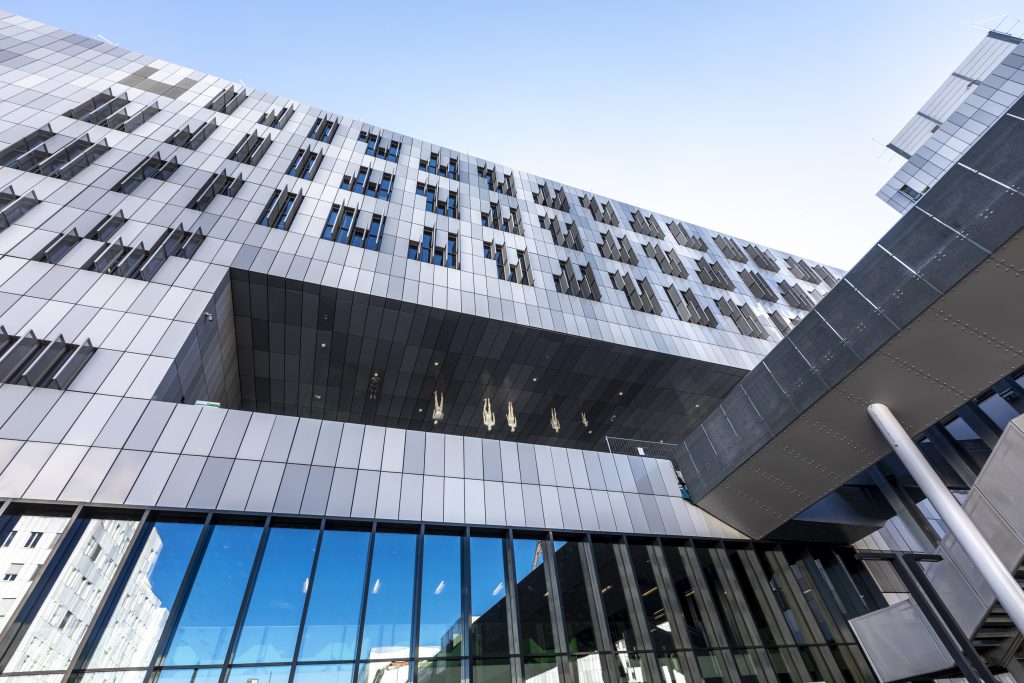
The Medical University of Graz is a center of innovative university medicine in the south of Austria and a major provider of patient care in the region. The university is guided by the principles of the biopsychosocial model, which places the human being at the center of all its activities. The Medical University of Graz combines its wide range of competencies under the motto “Pioneering Minds – Research and Education for the Health and Wellbeing of Patients”.
Christine Moissl-Eichinger, Deputy Director of the CoE, and Gregor Gorkiewicz, CoE Key Researcher, both bring important expertise in human gastrointestinal diseases to the CoE. While Christine and her lab investigate the composition and dynamics of the small intestine microbiome in inflammatory bowel disease patients, Gregor and his team work on improving fecal microbiota transplantation as a means to restore homeostasis to a disturbed host microbiome. CoE Key Researcher Christian Diener and his lab will contribute expertise in metagenomic data analysis and metabolic
modeling of complex microbial communities in diverse environments.
medical university of Vienna
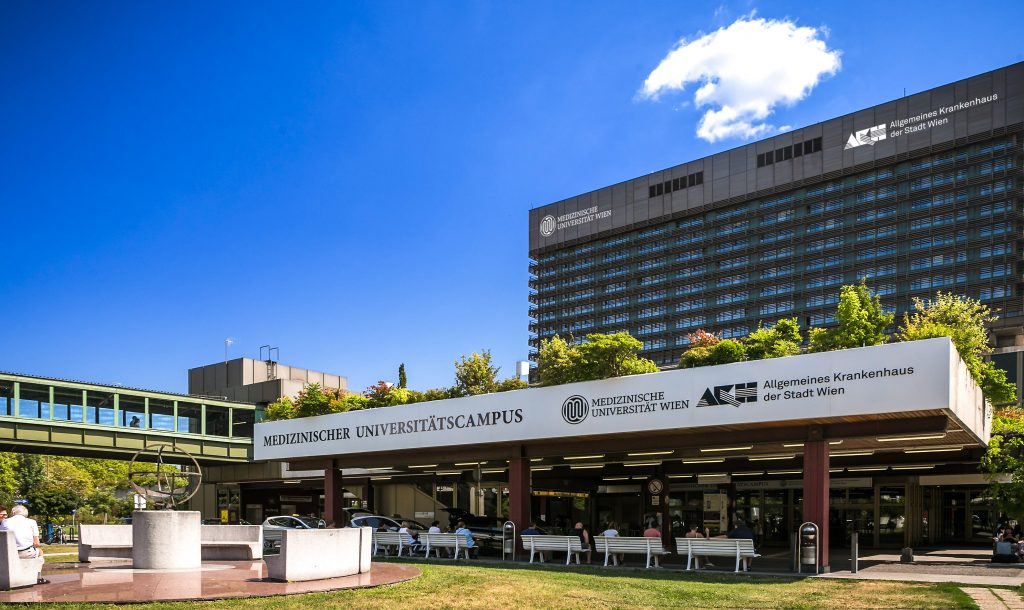
The Medical University of Vienna (MedUni Vienna) is one of Europe’s oldest medical education and research institutions. With around 8,000 students, it is now the largest medical education institution in the German-speaking world. With more than 6,000 employees, 30 university clinics and two clinical institutes, 12 medical theory centers, and numerous highly specialized laboratories, it is also one of the most important top research institutions in Europe in the biomedical sector.
Andreas Bergthaler, a CoE Board of Directors member, heads the Institute of Hygiene and Applied Immunology at MedUni Vienna. Apart from supporting CoE Members with their medical expertise on the interplay of immunology and metabolism, he and his team will establish monitoring of complex microbiomes in wastewater as an effective early warning system for public health within the CoE.
technische universität wien (tu wien)
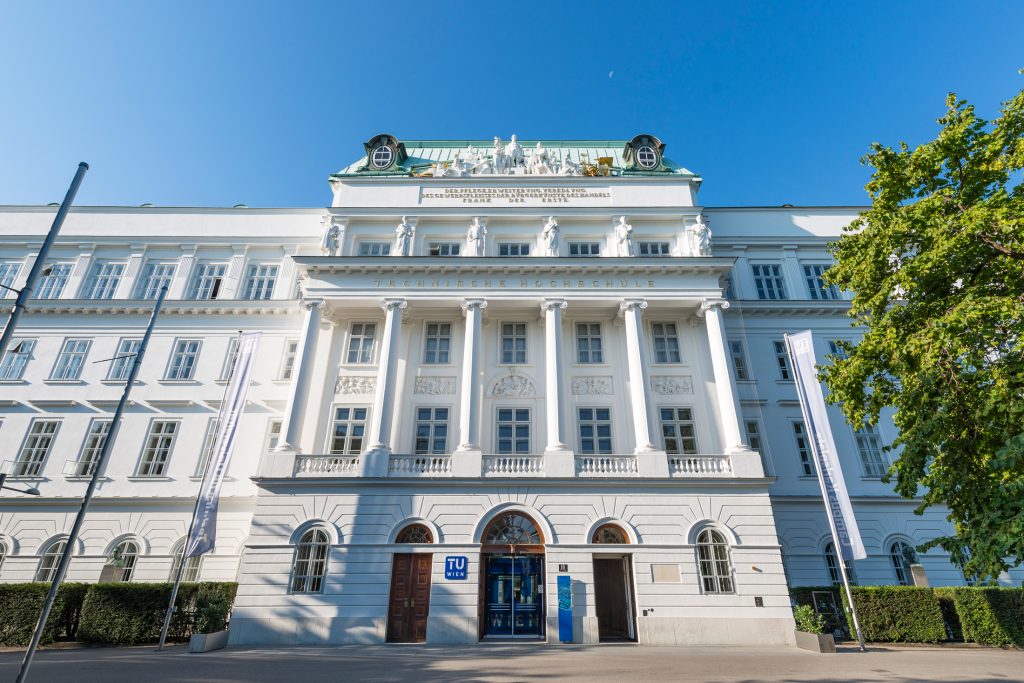
TU Wien is Austria’s largest research and education institution in technology and science. More than 4,000 scientists in eight faculties conduct research on “Technology for People” in five research areas. The content of the degree programs offered is derived from excellent research, which benefits more than 26,000 students in 62 different degree programs. As a driver of innovation, TU Vienna strengthens business locations, facilitates cooperation, and contributes to society’s prosperity.
Bernhard Lendl, a CoE Board of Directors member, and his team will develop innovative analytical-chemical techniques for microbiome research, e.g. trace gas sensors and nanoscale imaging technology. The group of CoE Key Researcher Peter Ertl will provide dedicated lab-on-a-chip technology for individual projects, and CoE Key Researcher Ruth Birner-Grünberger‘s team will contribute know-how and laboratory infrastructure for performing metaproteomic and metabolomic studies.

